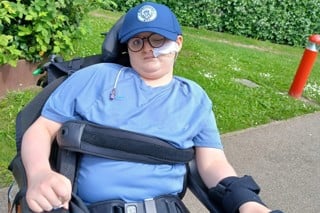The health and wellbeing of the sector’s employees has been thrust into the spotlight as HR teams have had to quickly implement a host of new policies in the wake of the coronavirus including furloughing teams and home working.
JCT600, which operates at more than 50 locations across Yorkshire, Lincolnshire, Derbyshire, Nottinghamshire and the North East, paid its furloughed staff 100% of their wages for March and April.
HR director Katie Saunders said: “It was the right thing to do. It has taken a weight off our 2,300 colleagues’ minds and has generated a huge amount of positive feedback.”
Prior to COVID-19, Saunders identified the biggest issue facing employees in the workplace as mental health.
The group has a team of mental health first aiders trained via automotive charity Ben, e-learning resources and the group has implemented a proactive absence and wellbeing process to support colleagues constructively when they return to work.
Saunders added: “Since lockdown the issues around mental and physical health have become magnified and we are learning new ways of communicating with colleagues to help them remotely.
“We have had a huge amount of positive feedback from colleagues who feel that we are truly supporting them and that has been extremely reassuring and great to receive.”
In January, the group appointed Nicola Tordoff-Sohne, who is also a health and nutrition practitioner, as head of wellbeing.
Responsible for a full programme of wellbeing seminars and workshops, following the outbreak, she has filmed webinars for employees on the importance of nutrition and supporting the immune system.
More generally, JCT600 uses its employee engagement survey to help inform policies and understand issues, with the last survey’s response rate in December an impressive 86%. Although, JCT600 made the Sunday Times Top 100 survey list twice, the group no longer takes part, preferring to tailor questions to suit its business.
Through Ben4Business, Ben works with employers and their HR teams to understand the health and wellbeing challenges that their people face.
Figures from Ben show mental health is the biggest issue for automotive industry people with more than half (52%) who contacted the charity last year asking for support with issues like stress, anxiety and depression.
Last year, in excess of 700 people received a mental health assessment through Ben, with around 90% going on to have counselling or other talking therapies.
And more than 180 people received life coaching: a six-week telephone-based programme to build confidence, self-esteem and develop positive coping strategies.
Ben health and wellbeing director Rachel Clift said: “We know that, by supporting a person’s overall wellbeing, we can better support their physical and mental health.”
Ben also provides support for individuals who are at risk of suicide or self-harm with its Critical Response Service responding to traumatic incidents in the workplace to help employers support their employees.
She added: “We provide support which, to date, has seen us predominantly supporting employers and employees after a colleague has taken their own life.
"This is a stark reality for us and the industry (men are three times as likely to take their own lives as women*).”
In response to COVID-19, Ben is fast-tracking access to information, advice and guidance for individuals with financial concerns related to the current situation.
The eligibility threshold for its welfare grants has been reduced and these are currently being allocated for those in dire financial hardship.
Ben is also about to launch a programme developed specifically to support individuals with COVID-19 related fears and anxieties.
Meanwhile, employees could struggle to readjust to the workplace once the lockdown is lifted.
Paul Canning, director at GMD People, which provides management and leadership programmes to the sector, said: “You could almost have the perfect storm, an internal build-up of vehicles, servicing and MOTs, potential demand from customers for purchasing a vehicle, and a work team that hasn’t ‘played’ for three months.
"It’s a big shock, you’ve gone from being home-based and low activity work-wise to suddenly stepping into high activity.
“Communication in the first three or four weeks will set the scene and that has got to be led by supervisors and managers on the basis of what the individual is feeling not what they are doing.”
This article was first published in AM magazine on May 22


















Login to comment
Comments
No comments have been made yet.